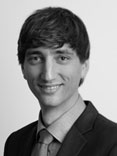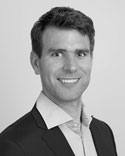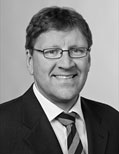- Our Story
- Publications & Resources
- Publications & Resources
- Publications
- IEEE Signal Processing Magazine
- IEEE Journal of Selected Topics in Signal Processing
- IEEE Signal Processing Letters
- IEEE Transactions on Computational Imaging
- IEEE Transactions on Image Processing
- IEEE Transactions on Information Forensics and Security
- IEEE Transactions on Multimedia
- IEEE Transactions on Signal and Information Processing over Networks
- IEEE Transactions on Signal Processing
- IEEE TCI
- IEEE TSIPN
- Data & Challenges
- Submit Manuscript
- Guidelines
- Information for Authors
- Special Issue Deadlines
- Overview Articles
- Top Accessed Articles
- SPS Newsletter
- SigPort
- SPS Resource Center
- Publications FAQ
- Blog
- News
- Dataset Papers
- Conferences & Events
- Community & Involvement
- Professional Development
- For Volunteers
- Information for Authors-OJSP
-
Home
ICASSP@50: A Recap [Conference Highlights]
Conversational Agents in the Era of Large Language Models
Conferences Events IEEE Signal Processing Magazine IEEE SPL Article IEEE TIFS Article IEEE TMM Article IEEE TSP Article Jobs in Signal Processing Lectures Machine Learning Seasonal Schools Signal Processing News SPM Article SPS Distinguished Lectures SPS Newsletter Article SPS Webinar SPS Webinars SPS Webinar Series Webinar webinars -
Our Story
What is Signal Processing?

The technology we use, and even rely on, in our everyday lives –computers, radios, video, cell phones – is enabled by signal processing. Learn More » -
Publications & Resources
-
SPS Resources
- Signal Processing Magazine The premier publication of the society.
- SPS Newsletter Monthly updates in Signal Processing
- SPS Resource Center Online library of tutorials, lectures, and presentations.
- SigPort Online repository for reports, papers, and more.
- SPS Feed The latest news, events, and more from the world of Signal Processing.
-
SPS Resources
-
Conferences & Events
-
Community & Involvement
-
Membership
- Join SPS The IEEE Signal Processing Magazine, Conference, Discounts, Awards, Collaborations, and more!
- Chapter Locator Find your local chapter and connect with fellow industry professionals, academics and students
- Women in Signal Processing Networking and engagement opportunities for women across signal processing disciplines
- Students Scholarships, conference discounts, travel grants, SP Cup, VIP Cup, 5-MICC
- Young Professionals Career development opportunities, networking
- Get Involved
-
Technical Committees
- Applied Signal Processing Systems
- Audio and Acoustic Signal Processing
- Bio Imaging and Signal Processing
- Computational Imaging
- Image Video and Multidimensional Signal Processing
- Information Forensics and Security
- Machine Learning for Signal Processing
- Multimedia Signal Processing
- Sensor Array and Multichannel
- Signal Processing for Communication and Networking
- Signal Processing Theory and Methods
- Speech and Language Processing
- Technical Working Groups
- More TC Resources
-
Membership
-
Professional Development
-
Professional Development
- Signal Processing Mentorship Academy (SigMA) Program
- Micro Mentoring Experience Program (MiME)
- Distinguished Lecturer Program
- Distinguished Lecturers
- Distinguished Lecturer Nominations
- Past Lecturers
- Distinguished Industry Speaker Program
- Distinguished Industry Speakers
- Distinguished Industry Speaker Nominations
- Industry Resources
- IEEE Training Materials
- Jobs in Signal Processing: IEEE Job Site
-
Career Resources
- SPS Education Program Educational content in signal processing and related fields.
- Distinguished Lecturer Program Chapters have access to educators and authors in the fields of Signal Processing
- Job Opportunities Signal Processing and Technical Committee specific job opportunities
- Job Submission Form Employers may submit opportunities in the area of Signal Processing.
-
Professional Development
-
For Volunteers
-
For Board & Committee Members
- Board Agenda/Minutes* Agendas, minutes and supporting documentation for Board and Committee Members
- SPS Directory* Directory of volunteers, society and division directory for Board and Committee Members.
- Membership Development Reports* Insight into the Society’s month-over-month and year-over-year growths and declines for Board and Committee Members
-
For Board & Committee Members
Popular Pages
Today's:
- Information for Authors
- (ICME 2026) 2026 IEEE International Conference on Multimedia and Expo
- IEEE Transactions on Information Forensics and Security
- IEEE Transactions on Image Processing
- (ASRU 2025) 2025 IEEE Automatic Speech Recognition and Understanding Workshop
- IEEE Transactions on Multimedia
- IEEE Transactions on Audio, Speech and Language Processing
- Access Restricted
- (ISBI 2026) 2026 IEEE 23rd International Symposium on Biomedical Imaging
- Submit a Manuscript
- IEEE Transactions on Signal Processing
- Information for Authors-SPL
- IEEE Journal of Selected Topics in Signal Processing
- Conference Call for Papers
- Unified EDICS
All time:
- Information for Authors
- Submit a Manuscript
- IEEE Transactions on Image Processing
- IEEE Transactions on Information Forensics and Security
- IEEE Transactions on Multimedia
- IEEE Transactions on Audio, Speech and Language Processing
- IEEE Signal Processing Letters
- IEEE Transactions on Signal Processing
- Conferences & Events
- IEEE Journal of Selected Topics in Signal Processing
- Information for Authors-SPL
- Conference Call for Papers
- Signal Processing 101
- IEEE Signal Processing Magazine
- Guidelines
Last viewed:
- Submit a Proposal for ICASSP 2030
- Inside Signal Processing Newsletter
- IEEE Transactions on Signal Processing
- SPS Mentors - SigMA Program
- Call for Project Proposals: IEEE SPS SigMA Program - Signal Processing Mentorship Academy
- Signal Processing Mentorship Academy (SigMA) Program
- Access Restricted
- SSIM-Based Global Optimization for CTU-Level Rate Control in HEVC
- Information for Authors
- RSB-Pose: Robust Short-Baseline Binocular 3D Human Pose Estimation With Occlusion Handling
- About Transactions on Information Forensics and Security
- IEEE Transactions on Image Processing
- IEEE Transactions on Information Forensics and Security
- (CAI 2026) IEEE Conference on Artificial Intelligence 2026
- Boards and Committees
Upcoming Webinar, 24 June 2021: Learning the MMSE Channel Estimator
You are here
Newsletter Menu
Newsletter Categories
Top Reasons to Join SPS Today!
1. IEEE Signal Processing Magazine
2. Signal Processing Digital Library*
3. Inside Signal Processing Newsletter
4. SPS Resource Center
5. Career advancement & recognition
6. Discounts on conferences and publications
7. Professional networking
8. Communities for students, young professionals, and women
9. Volunteer opportunities
10. Coming soon! PDH/CEU credits
Click here to learn more.
News and Resources for Members of the IEEE Signal Processing Society
Upcoming Webinar, 24 June 2021: Learning the MMSE Channel Estimator
Upcoming SPS Webinar
Topic: Learning the MMSE Channel Estimator
Date: 24 June 2021
Time: 11:00 AM ET (New York time)
Duration: 1 Hour
Presenters: Dr. David Neumann, Dr. Thomas Wiese, Dr. Wolfgang Utschick
Based on the IEEE Xplore® article: Learning the MMSE Channel Estimator
Published: IEEE Transactions on Signal Processing, January 2018
Download: Original article will be made freely available for download on the day of the webinar, on IEEE Xplore®

The IEEE Signal Processing Society would like to express our concern and support for the members of our global community and all affected by the current COVID-19 pandemic. We appreciate your continued patience and support as we work together to navigate these unforeseen and uncertain circumstances. We hope that you, your families, and your communities are safe!
About this topic:
This webinar will discuss the MMSE channel estimator for a simple SIMO system model, without knowledge of the required channel statistics. Although the derived MMSE estimator is computationally intractable in the general form, its structure can be used to motivate a neural network architecture with lower complexity. The complexity reduction is based on a set of assumptions on the system model that simplify the MMSE estimator. The performance of the simplified MMSE estimator degrades significantly when those assumptions are not met. In contrast, a neural network based on the simplified MMSE estimator can compensate the mismatch by learning from data of the actual channel model. The presenters will also show how to extend the simple SIMO model to other practically relevant scenarios. Finally, they will demonstrate the performance when the neural network is learned based on actual channel measurements as compared to simulated data.
About the presenters:

Dr. David Neumann received the Dipl.-Ing. degree in electrical engineering from Technische Universität München (TUM), München, Germany, in 2011. He received the doctoral degree from the Professorship for Signal Processing at TUM in 2020 for work on transceiver design for large-scale communication systems.
Dr. Neumann was working at Intel on the development of a next generation cellular modem from 2018 to 2019. In 2019, he joined Apple in Munich.

Dr. Thomas Wiese received the Dipl.-Ing. degree in electrical engineering and the Dipl.-Math. degree in mathematics from Technische Universität München (TUM) in 2011 and 2012, respectively.
From 2012 through 2018 he worked at the Professorship for Signal Processing at TUM with Prof.
Utschick. In his dissertation, he analyzed the complexity of the channel estimation problem in millimeter wave communication systems and studied the applicability of low-complexity algorithms to that problem.
Dr. Wiese joined Cadami GmbH in Munich in 2018 and has since helped bringing the coded caching technology from research to application.

Dr. Wolfgang Utschick (Fellow, IEEE) completed several years of industrial training programs before he received the diploma and doctoral degrees in Electrical Engineering (both with distinction), with a dissertation on machine learning, from the Technische Universität München (TUM), München, Germany, in 1993 and 1998, respectively. Since 2002, he has been a Professor with the TUM, where he is chairing a Signal Processing group. He teaches courses on Signal Processing, Stochastic Processes, Optimization Theory, and Machine Learning in the field of Wireless Communications and various application areas of Signal Processing. Since 2011, he has been a regular Guest Professor with Singapore’s new autonomous university, Singapore Institute of Technology, Singapore, and since 2017, he has been the Dean of the Department of Electrical and Computer Engineering, TUM.
He holds several patents in the field of Multiantenna Signal Processing and has authored and coauthored a large number of technical articles in international journals and conference proceedings. He edited several books and is Founder and Editor of the Springer book series Foundations in Signal Processing, Communications and Networking. He was the recipient of a couple of best paper awards. He has been a Principal Investigator in multiple research projects funded by the German Research Fund (DFG) and coordinated a German DFG priority program on Communications Over Interference Limited Networks.
Dr. Utschick is a member of the VDE, and therein a member of the Expert Group 5.1 for Information and System Theory of the German Information Technology Society. He is currently chairing the German Signal Processing Section. He was also an Associate Editor for the IEEE Transactions on Signal Processing and was a member of the IEEE Signal Processing Society Technical Committee on Signal Processing for Communications and Networking.
Open Calls
| Nomination/Position | Deadline |
|---|---|
| Call for Nominations for the SPS Chapter of the Year Award | 15 October 2025 |
| Call for Papers for 2026 LRAC Workshop | 22 October 2025 |
| Submit Your 2026 ICASSP Workshop Paper | 22 October 2025 |
| Submit a Proposal for ICASSP 2030 | 31 October 2025 |
| Call for Project Proposals: IEEE SPS SigMA Program - Signal Processing Mentorship Academy | 2 November 2025 |
| Submit Your Proposals for 2026 Member-Driven Initiatives | 21 November 2025 |
| IEEE Signal Processing Society Annual Election Opens on 17 October | 4 December 2025 |
Technical Committee News
Member Highlights
Education & Resources
Society News
- 108 Signal Processing Society Members Elevated to Senior Member!
- Updated SPS Chapter Logo Usage and Branding Guidelines
- Student Membership in Region 9
- Job Opportunities in Signal Processing
- Call for Nominations: Awards Board Chair and Fellow Evaluation Committee - Chair and Vice Chair Positions
- Call for Nominations: SPS Chapter of the Year Award
Conferences & Events
SPS Social Media
- IEEE SPS Facebook Page https://www.facebook.com/ieeeSPS
- IEEE SPS X Page https://x.com/IEEEsps
- IEEE SPS Instagram Page https://www.instagram.com/ieeesps/?hl=en
- IEEE SPS LinkedIn Page https://www.linkedin.com/company/ieeesps/
- IEEE SPS YouTube Channel https://www.youtube.com/ieeeSPS
Home | Sitemap | Contact | Accessibility | Nondiscrimination Policy | IEEE Ethics Reporting | IEEE Privacy Policy | Terms | Feedback
© Copyright 2025 IEEE - All rights reserved. Use of this website signifies your agreement to the IEEE Terms and Conditions.
A public charity, IEEE is the world's largest technical professional organization dedicated to advancing technology for the benefit of humanity.









